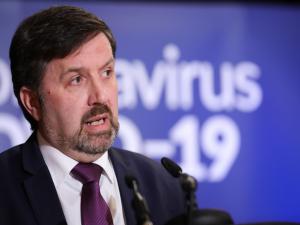
By Q Radio News/PA
Health Minister Robin Swann is urging people to get their booster vaccine amid a Covid-19 spike as more than 30,000 cases of the virus were recorded here in just four days.
Other countries in the UK seem to be either on the same wavelength or more relaxed in terms of their messages.
Here is a look at the current state of play regarding Covid-19:
– What do the numbers say?
In Northern Ireland, New Year’s Eve saw a further 7,215 cases, a record daily total since the beginning of the pandemic.
In England and Scotland, more than 200,000 lab-confirmed daily Covid-19 cases were recorded for the first time on Tuesday.
However, these figures contain some delayed reporting of cases because of the holiday period.
Covid-19: What is happening amid a wave of Omicron cases across NI and the rest of the UK? #COVID19 #Omicron https://t.co/mHaVsRQ4xW
— Q Radio News (@qnewsdesk) January 5, 2022
– How are restrictions looking across the UK?
Nightclubs have been shut in Northern Ireland, Scotland and Wales.
If a person in Northern Ireland, England or Wales has tested positive or has symptoms, they can stop self-isolating after seven days instead of 10 if they receive two negative lateral flow test results on days six and seven.
Face coverings are compulsory here in most indoor public settings, as well as on public transport, and people have been told to work from home if they can, which is similar for the other countries.
There are also restrictions on the amount of people who can attend events in Northern Ireland, Scotland and Wales.
England has the most relaxed rules in the UK, with Covid-19 passes for entry into nightclubs and other venues.
The Prime Minister said there is a “good chance” he will not impose fresh restrictions as he backed sticking with Plan B measures.
– What has been announced recently?
In Northern Ireland, the Health Minister has urged people to get their booster vaccine after more than 30,000 cases of Covid-19 were recorded here in just four days.
Robin Swann said the figures were “deeply concerning” and would put further pressure on the healthcare service.
In England, the Prime Minister has said now is the time for the “utmost caution”.
He announced that 100,000 “critical workers” including those in transport, policing and food distribution will get lateral flow tests on every working day starting on Monday.
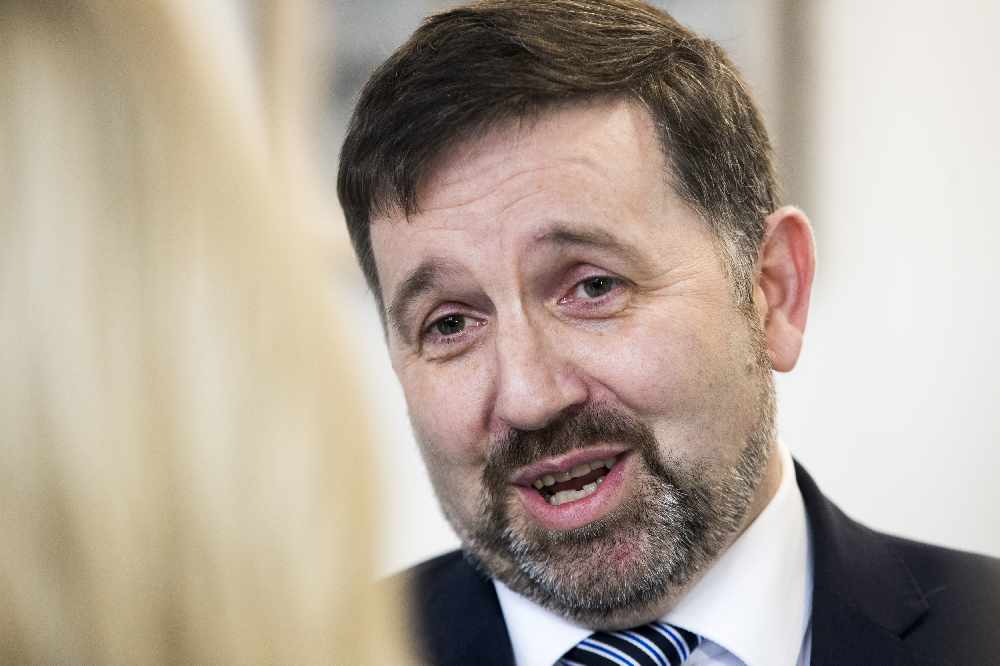 Health Minister Robin Swann
Health Minister Robin Swann
– What is happening in schools?
Pupils are returning to the classroom after the Christmas break, but with the advice in each country differing.
In Northern Ireland, Graham Gault, from the National Association of Head Teachers (NAHT), said that while teachers wanted schools to remain open, they had concerns over contact tracing as well as a staffing crisis.
In England, secondary school pupils have to wear face masks in lessons due to a rise in coronavirus cases.
Secondary school and college students are also being encouraged to test on site before returning to class.
The Education Secretary there said schools should be prepared to merge classes into large groups if staff levels dip too low.
Meanwhile, the Scottish Government has urged secondary school pupils to take a lateral flow test before returning to school, while those aged 12 to 15 are urged to have their second coronavirus jab for which they are now eligible.
– How is the situation in hospitals?
The Chief Scientific Advisor for Northern Ireland, Professor Ian Young, says he expects to see the peak of case numbers in the Omicron surge coming in early to mid January.
In terms of hospital admissions and occupancy, he said he expects to see a peak in mid-late January.
Meanwhile, England’s Chief Medical Officer Professor, Sir Chris Whitty, said “the great majority” of those who were in intensive care had not been jabbed.
He acknowledged that “some hospitals, some areas of the country” will come under “very substantial pressure over the next couple of weeks” with high numbers of staff isolating.
– What could be announced next?
In Northern Ireland, Professor Ian Young said he would advise the public to get vaccinated and boosted, as well as follow the basic public health advice to guard against Covid-19.
He also indicated that further restrictions at this stage in the surge are unlikely to be effective.
In England, the Government said it is continuing to follow the data over the spread of coronavirus and is listening to scientists and experts.
Plan B measures to tackle coronavirus are set to be officially reviewed when MPs return to Parliament on Wednesday.
However, given Mr Johnson’s message at Tuesday’s press conference, it is unlikely any major measures will be imposed.
The First Minister of Scotland will address the Scottish Parliament on Wednesday to give an update on the situation with Covid-19.
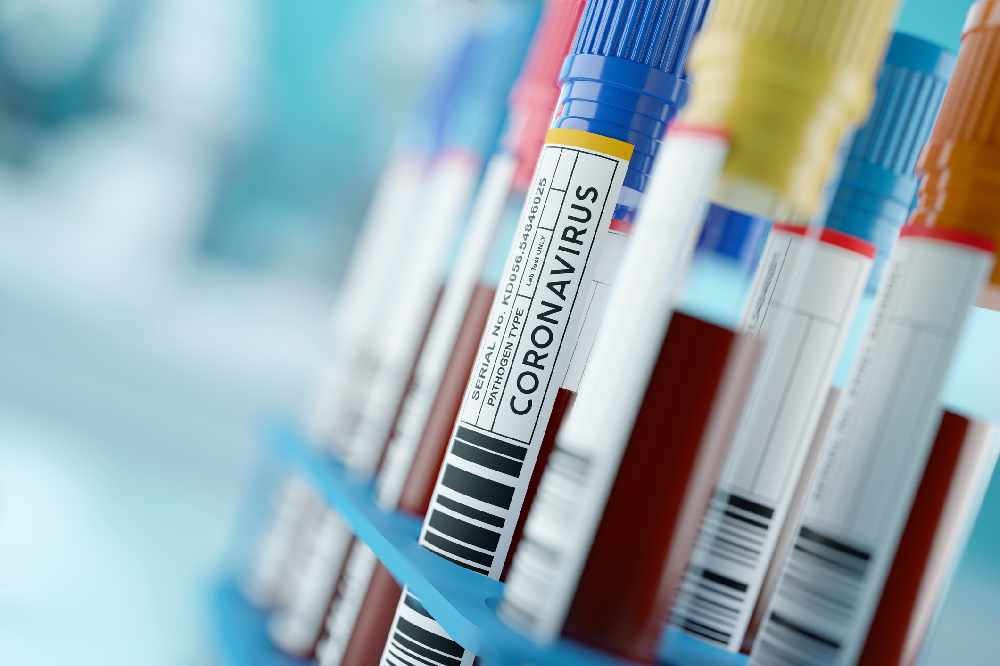


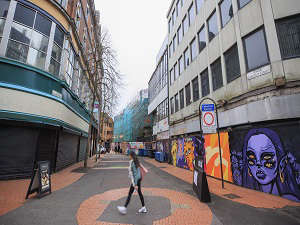 More than 5,000 NI children set to spend Christmas in temporary accommodation
More than 5,000 NI children set to spend Christmas in temporary accommodation
 No evidence of police collusion in 1978 La Mon bombing
No evidence of police collusion in 1978 La Mon bombing
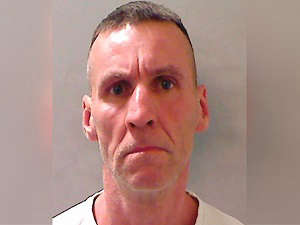 Sex offender who targeted girls online across the UK jailed for 27 years
Sex offender who targeted girls online across the UK jailed for 27 years
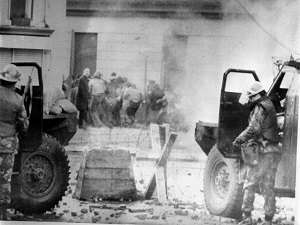 Pre-trial rulings due in Bloody Sunday prosecution of Soldier F
Pre-trial rulings due in Bloody Sunday prosecution of Soldier F
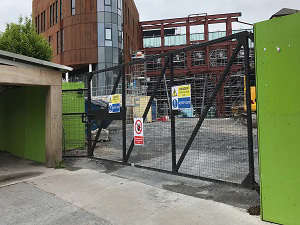 ‘Worst-case scenario’ could delay Belfast maternity hospital by four years
‘Worst-case scenario’ could delay Belfast maternity hospital by four years